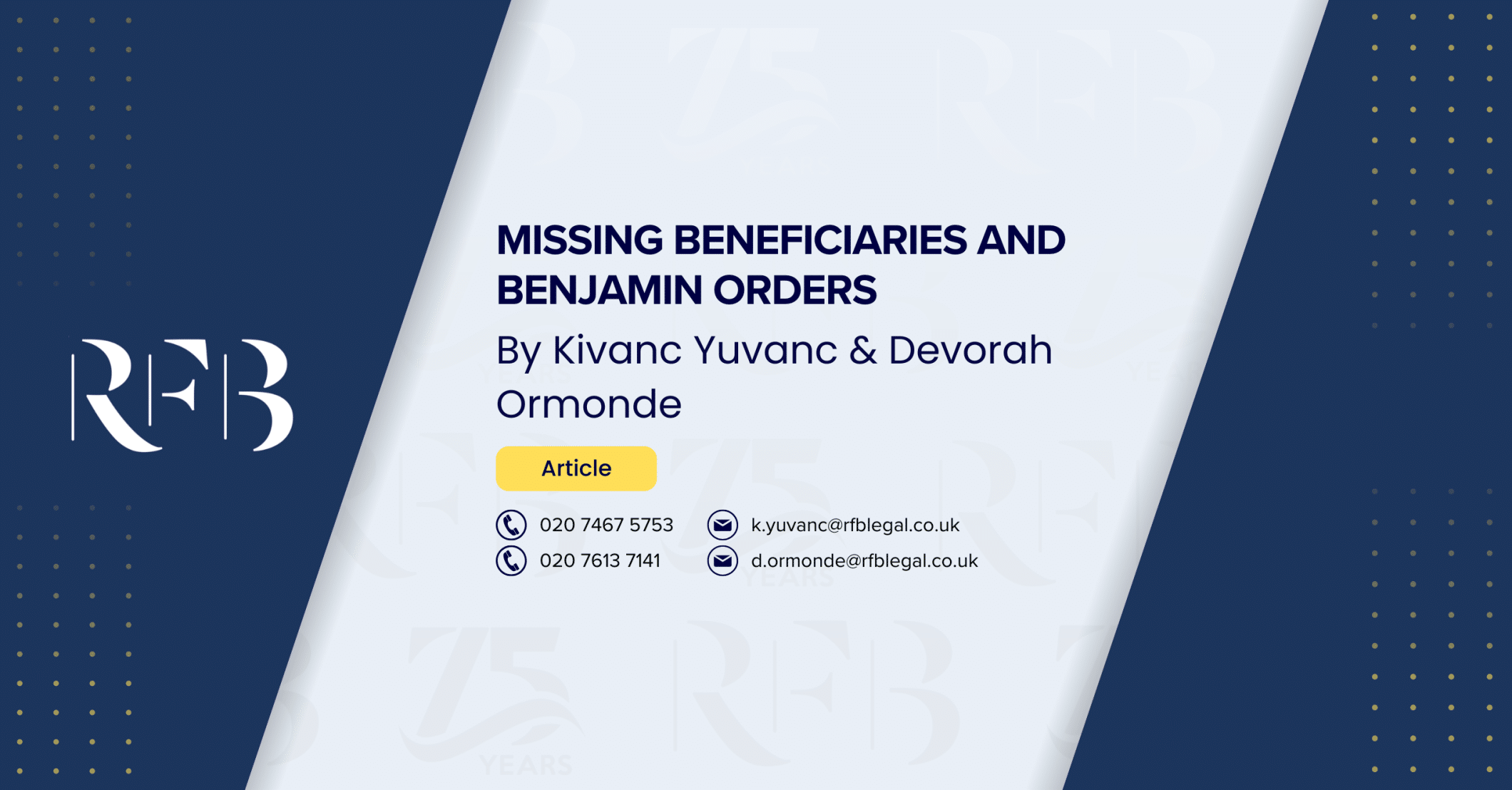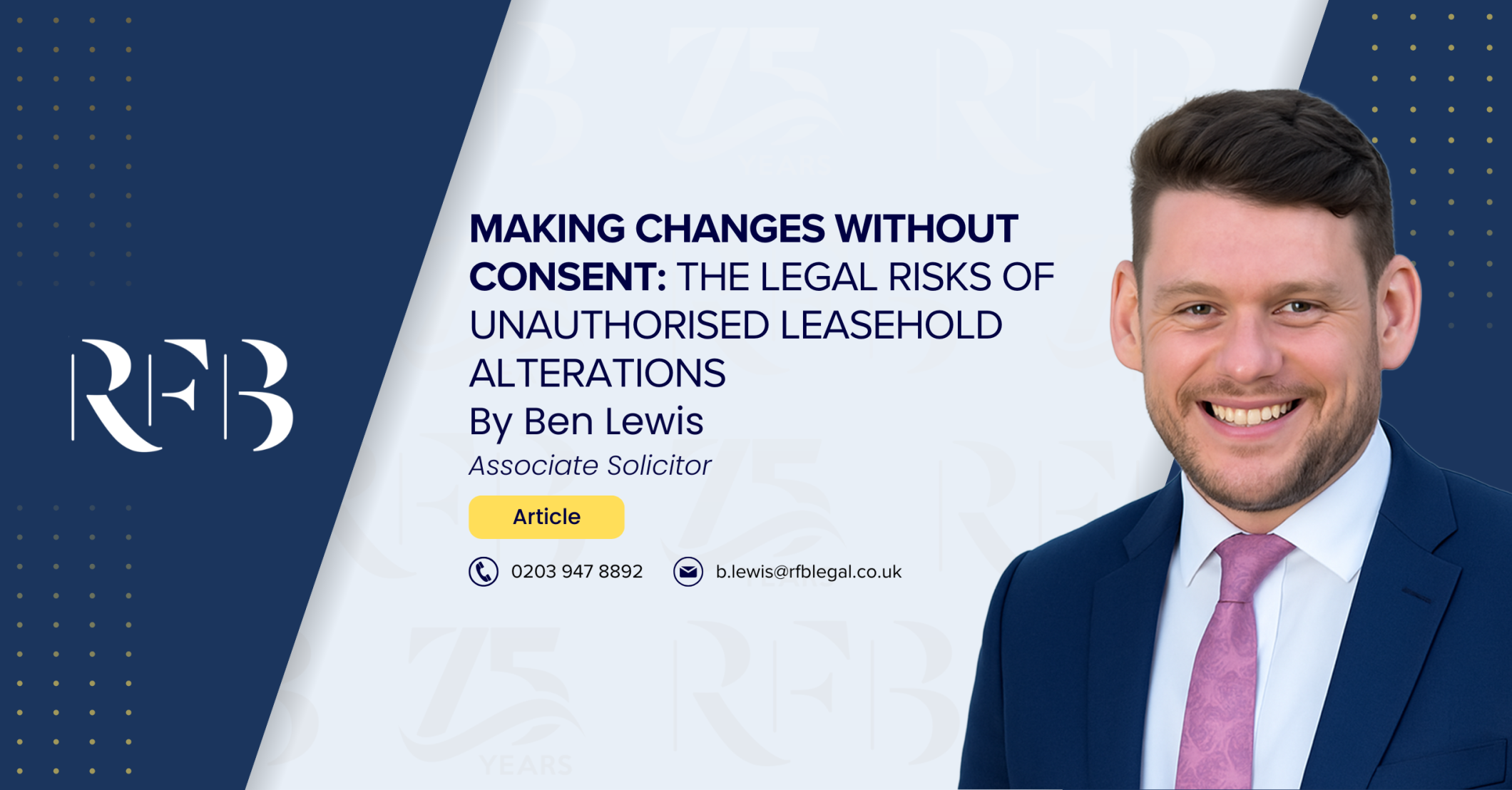In most cases, making a Will means that your affairs are finally put in order. Zyginta Urbonaite, a solicitor in the Private Client department explains how two recent court decisions offer important reminders that your Will can impact trust arrangements made many years earlier.
The case of Equiom v Velarde concerned the will of Patricia Moores and the trust created by her father, the founder of the Littlewoods empire in 1949.
Mrs Moores had been given a power of appointment over the trust assets. The power could be exercised by revocable or irrevocable deed, or by will or codicil. Mrs Moores exercised the power by a revocable deed in 1981 to divide the fund with effect from her death into three separate funds for the benefit of her three children, Christian, Rebecca and Matthew. In 1997, she made a further deed of appointment revoking the appointment made in 1981 and instead dividing the trust fund with effect from her death just between Christian and Rebecca.
Mrs Moores made her will in 2007 with the same law firm which had prepared the two deeds of appointment leaving her estate equally between all three of her children. After her death, Matthew claimed that the will had also revoked the 1997 deed of appointment so that he would also receive a one third share of the trust fund.
He relied on the following clause of the will:
“I LEAVE DEVISE BEQUEATH AND APPOINT the whole of my real estate and the rest residue and remainder of my personal estate wheresoever situate and of whatsoever kind of or to which I shall be seised possessed or entitled at the date of my death or over which I shall have any power of testamentary disposition whatsoever …”
The court held that this clause did revoke the 1997 appointment and made a new appointment of the fund in favour of Mrs Moores’ three children equally. This is because the judge considered that Mrs Moore knew about her power of appointment under the settlement when making her Will and unusual reference to include any property over which Mrs Moores had any power of testamentary disposition whatsoever evidenced an intention on the part of Mrs Moores to exercise a power of appointment.
In Mattingley v Bugeja, the court considered whether Kim Mattingley had agreed with her sister Karen Bugeja that subject to the right for her mother to continue living in her property during her lifetime, 26.625% would be held by Karen on trust for Kim’s daughter Anabel after her death.
Anabel’s father gave evidence that Kim had discussed this with him and Anabel claimed that Karen had promised to hold this share for her during a conversation with Kim at which she was present.
However, Kim’s will left her entire interest in the property to Karen and did not mention that any provision should be made from the property for Anabel. The court held that the 2016 Will expressed the last Deceased’s wishes and that there was no indication that Kim had created a secret trust of the property. The court emphasised that the Deceased had numerous opportunities to include provision from the property for Anabel in her will. Although it was accepted that communications between Kim and her solicitors indicated that Kim wanted Karen to ultimately make some provision for Anabel from the property, the vague way in which this had been expressed was not sufficient to override the terms of the will.
These recent court decisions emphasise importance of making sure that you think about what would happen to all your assets when expressing your last wishes in your Will. If you are concerned about the impact that your Will may have in relation to any previous arrangements that you have put in place, please contact a member of the Private Client department at privateclient@rfblegal.co.uk
Published: 18 February 2022


